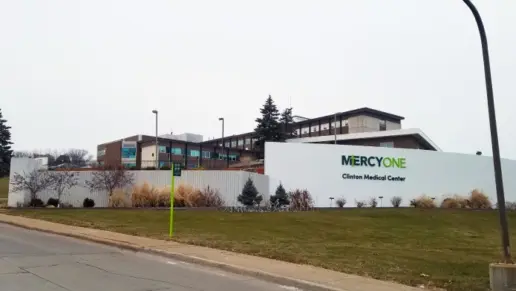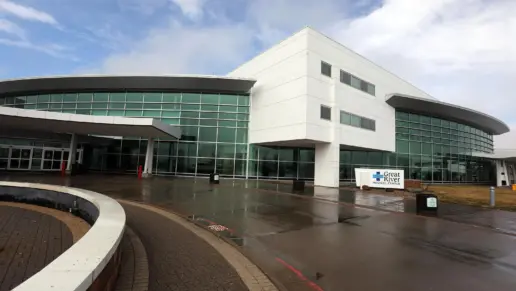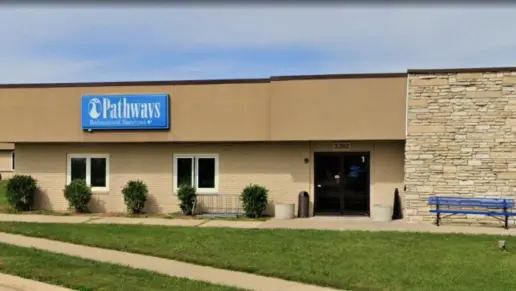They really did give me a second chance. They helped me in every way possible and always treated me with respect and dignity. Thank you very much.
About Wellmark Urban Dreams Community Center
The Wellmark Urban Dreams Community Center offers addiction treatment services to teens and adults in the urban community of Des Moines, Iowa. You can also receive help for mental health conditions. They have nine other locations in the surrounding cities, but we will be focusing on their Des Moines location here. They offer outpatient services and an OWI program that is separated between 12-hour and 48-hour courses. They also offer classes for Spanish speakers. They can assist over 1,750 individuals through all of their programs combined.
You can get connected to the community with their monthly community engagement events. These are typically free events that put an emphasis on providing positive experiences that can help people meet local law enforcement professionals in a friendly way and engage with local businesses and community leaders. They usually attract over 15,000 families and community members each year.
Their community food pantry service receives food from generous businesses such as Pizza Hut and Whole Foods. Individuals can visit the pantry once daily in order to receive fresh and non-perishable food.
They also have a youth employment program for teens between the ages of 14 and 19. This program helps teens get hands-on experience in the workforce. There are also fun services such as their golf simulator. This allows people, from beginners to experts, to participate in a simulation with stunning detail. Aside from all this, they have panels and workshops that are relevant and can teach you a lot of important lessons and prepare you for the real world.
Latest Reviews
Rehab Score
Other Forms of Payment
Private insurance refers to any kind of healthcare coverage that isn't from the state or federal government. This includes individual and family plans offered by an employer or purchased from the Insurance Marketplace. Every plan will have different requirements and out of pocket costs so be sure to get the full details before you start treatment.
Self-pay involves paying for treatment out of your own pocket. You can use savings or credit, get a personal loan, or receive help from family and friends to fund your treatment. If you don't have insurance or your insurance plan doesn't cover a specific program, self-pay can help ensure you still get the care you need.
Financial aid can take many forms. Centers may have grants or scholarships available to clients who meet eligibility requirements. Programs that receive SAMHSA grants may have financial aid available for those who need treatment as well. Grants and scholarships can help you pai for treatment without having to repay.
Medicaid is a state based program that helps lower-income individuals and families pay for healthcare. Medicaid covers addiction treatment so those enrolled can use their coverage to pay for rehab. When a program accepts Medicaid the client often pays very little or nothing out of their own pocket.
Addiction Treatments
Levels of Care
Treatments
The goal of treatment for alcoholism is abstinence. Those with poor social support, poor motivation, or psychiatric disorders tend to relapse within a few years of treatment. For these people, success is measured by longer periods of abstinence, reduced use of alcohol, better health, and improved social functioning. Recovery and Maintenance are usually based on 12 step programs and AA meetings.
Drug rehab in Iowa is available in many formats. A variety of inpatient and outpatient options provide programs that are tailored to individual needs, making recovery possible for everyone.
Many of those suffering from addiction also suffer from mental or emotional illnesses like schizophrenia, bipolar disorder, depression, or anxiety disorders. Rehab and other substance abuse facilities treating those with a dual diagnosis or co-occurring disorder administer psychiatric treatment to address the person's mental health issue in addition to drug and alcohol rehabilitation.
A combined mental health and substance abuse rehab has the staff and resources available to handle individuals with both mental health and substance abuse issues. It can be challenging to determine where a specific symptom stems from (a mental health issue or an issue related to substance abuse), so mental health and substance abuse professionals are helpful in detangling symptoms and keeping treatment on track.
Programs




Clinical Services
Cognitive Behavioral Therapy (CBT) is a therapy modality that focuses on the relationship between one's thoughts, feelings, and behaviors. It is used to establish and allow for healthy responses to thoughts and feelings (instead of unhealthy responses, like using drugs or alcohol). CBT has been proven effective for recovering addicts of all kinds, and is used to strengthen a patient's own self-awareness and ability to self-regulate. CBT allows individuals to monitor their own emotional state, become more adept at communicating with others, and manage stress without needing to engage in substance abuse.
Group therapy is any therapeutic work that happens in a group (not one-on-one). There are a number of different group therapy modalities, including support groups, experiential therapy, psycho-education, and more. Group therapy involves treatment as well as processing interaction between group members.
In individual therapy, a patient meets one-on-one with a trained psychologist or counselor. Therapy is a pivotal part of effective substance abuse treatment, as it often covers root causes of addiction, including challenges faced by the patient in their social, family, and work/school life.
Motivational Interviewing (MI) is a clinical approach to helping people with substance abuse issues and other conditions shift behavior in positive ways. It is more goal-oriented than traditional psychotherapy, as MI counselors directly attempt to get clients to consider making behavioral change (rather than wait for them to come to conclusions themselves). Its primary purpose is to resolve ambivalence and help clients become able to make healthy choices freely.
Trauma therapy focuses on helping you heal from the psychological impact of witnessing or experiencing a traumatic event. Your therapist offers you support and guidance, which ultimately helps reduce your distress and build resilience.
Couples therapy in Iowa involves mediation, education, and psychotherapy. Participants learn about themselves and each other and how to successfully navigate challenges in the relationship. Sessions can include both joint and individual meetings with the therapist.
During family therapy in Iowa, therapists focus on the collective healing of all members of the family unit who were impacted by addiction. Therapists guide families in understanding the effect addiction has and develop healthy communication practices. By working together, families can help support their loved ones recovery.
Accreditations

State Licenses are permits issued by government agencies that allow rehab organizations to conduct business legally within a certain geographical area. Typically, the kind of program a rehab facility offers, along with its physical location, determines which licenses are required to operate legally.
State License: Iowa
Contact Information
1615 2nd Ave
Des Moines, IA 50314


